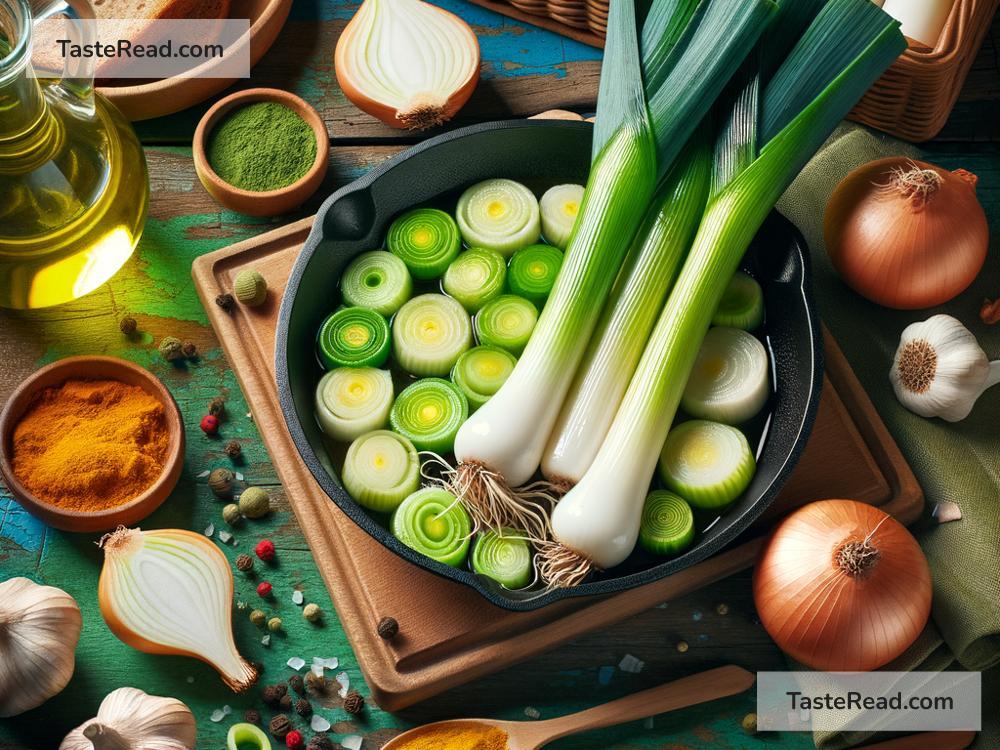How Leeks Improve Cardiovascular Health for High-Pressure Jobs
In today’s fast-paced world, having a high-pressure job is increasingly common. Whether you’re a nurse working long hours, a busy corporate manager, or a teacher juggling countless responsibilities, these demanding roles can take a toll on your health. One of the biggest concerns with high-stress jobs is the impact on cardiovascular health. Prolonged stress can raise blood pressure, increase the workload on your heart, and elevate the risk of heart disease.
The good news? You can support your heart health through smart dietary choices. One simple, natural, and delicious way to protect your cardiovascular system is by adding leeks to your meals. You might associate leeks with soups or stews, but these humble vegetables pack a surprising punch when it comes to heart health. Let’s explore how leeks promote cardiovascular wellness and how they can help you thrive in high-pressure jobs.
What Are Leeks?
Leeks might not be as common as carrots or potatoes, but they are a highly nutritious member of the allium family of vegetables—a group that includes onions, garlic, and shallots. Leeks have a mild, slightly sweet flavor and can be used in a variety of dishes. Beyond taste, leeks stand out because of their health benefits. Packed with vitamins, minerals, and antioxidants, leeks are a superfood for your heart, offering vital nutrients that keep your cardiovascular system strong and resilient.
How Do High-Pressure Jobs Affect Your Heart?
High-pressure jobs often come with long hours, mental stress, and sometimes even poor sleeping or eating habits. While short-term stress might not harm your health in significant ways, long-term stress can have serious consequences. Chronic stress can lead to:
-
High Blood Pressure: Stress causes your body to release hormones like cortisol and adrenaline. These hormones raise blood pressure and put extra strain on your heart and blood vessels. If left unchecked, this can result in conditions like hypertension.
-
Inflammation: Stress can trigger inflammation in your body, which contributes to damage in the arteries and increases the risk of heart disease.
-
Poor Diet Choices: Busy schedules often lead to eating unhealthy food that’s high in salt, sugar, and unhealthy fats—further worsening heart health.
To combat these issues, it’s essential to prioritize heart-friendly habits, including stress management and nutrient-rich, low-sodium foods like leeks.
Why Are Leeks Good for Your Heart?
Leeks offer a powerhouse of nutrients that support cardiovascular health. Here’s how they help:
1. Rich in Antioxidants
Leeks contain a natural antioxidant called kaempferol, which protects your heart and blood vessels by fighting free radicals. Free radicals are unstable molecules that contribute to oxidative stress, damaging cells and causing inflammation. Antioxidants like kaempferol help keep your arteries healthy and reduce the risk of heart disease.
2. Aid in Lowering Blood Pressure
Stress from high-pressure jobs often spikes your blood pressure, but the potassium in leeks can help regulate it. Potassium works by relaxing your blood vessel walls, ensuring smoother blood flow and reducing strain on your cardiovascular system.
3. Support Cholesterol Management
Leeks are high in dietary fiber, particularly soluble fiber. This type of fiber helps reduce bad cholesterol (LDL) levels by binding with it in your gut and eliminating it from your body. Lower cholesterol levels help prevent plaque buildup in arteries, reducing the risk of heart attacks and strokes.
4. Encourage Healthy Blood Circulation
Leeks contain folate, or vitamin B9, which is essential for healthy blood circulation and the production of red blood cells. Folate helps prevent the buildup of homocysteine, an amino acid that can harm your blood vessel walls if levels get too high. Homocysteine has been linked to an increased risk of heart disease, so keeping levels low is important.
5. Low-Sodium Option
Many processed and fast foods are high in sodium, which contributes to high blood pressure. Leeks are naturally low in sodium, making them an excellent option for anyone aiming to reduce salt intake while keeping meals flavorful and heart-healthy.
How to Add Leeks to Your Diet
Leeks are versatile and easy to incorporate into meals. Here are some simple ways to add them to your diet:
-
Soup and Stews: One of the easiest ways to enjoy leeks is by adding sliced leeks to soups and stews. Pair them with other vegetables, chicken, or beans for a hearty and nutrient-packed meal.
-
Sautéed Leeks: Sauté leeks in a bit of olive oil or butter for a quick side dish. Add garlic or a sprinkle of herbs for extra flavor.
-
Leek and Potato Mash: Mash cooked leeks and potatoes together to create a creamy dish that’s perfect for dinner.
-
Salads: Add thinly sliced raw leeks to salads for a crunchy texture and mild onion-like flavor.
-
Quiches or Omelets: Leeks make an excellent addition to breakfast dishes like quiches and omelets.
Conclusion
For anyone navigating a high-pressure career, your health—especially heart health—is too important to ignore. Leeks are a simple yet effective addition to your diet to help combat the negative effects of stress, high blood pressure, and unhealthy eating habits associated with busy lifestyles. With their rich content of antioxidants, potassium, fiber, and folate, leeks can be your heart’s best friend.
By incorporating leeks regularly into your meals, you’re not only improving your heart health but also boosting your energy and resilience to tackle life’s challenges. Stress may be a part of the job, but with leeks on your plate, you’ll be giving your body the support it needs to stay strong and healthy.


